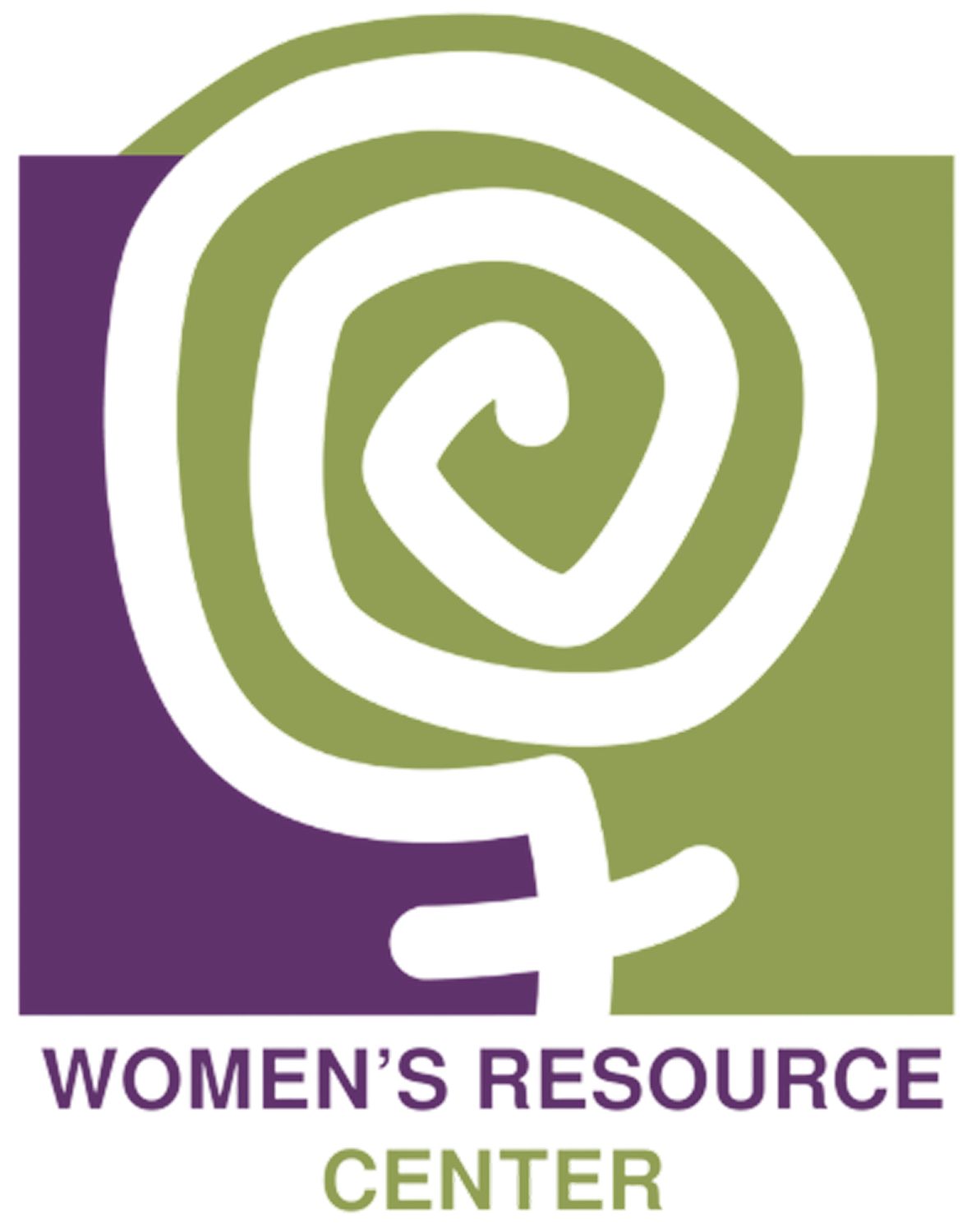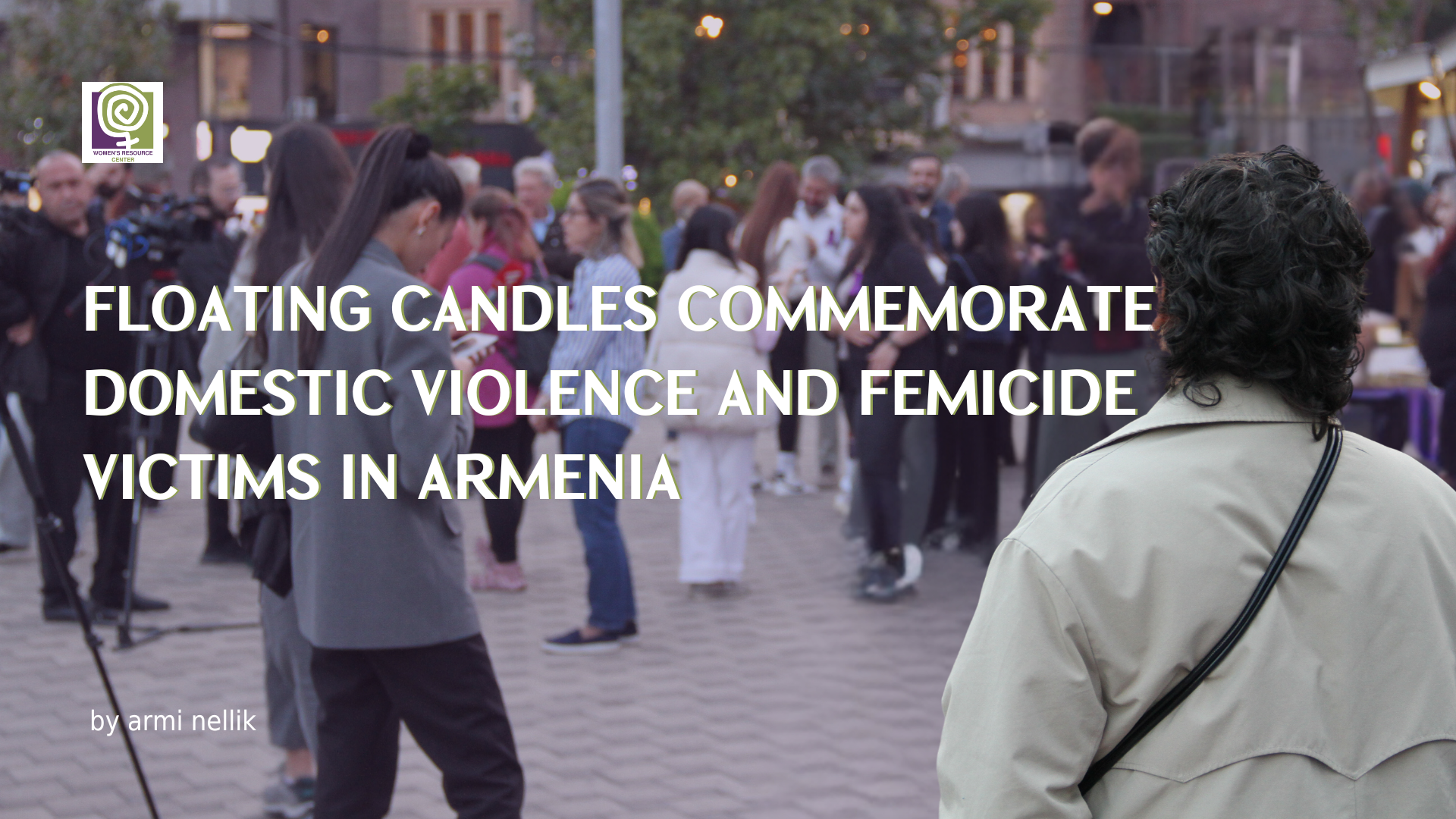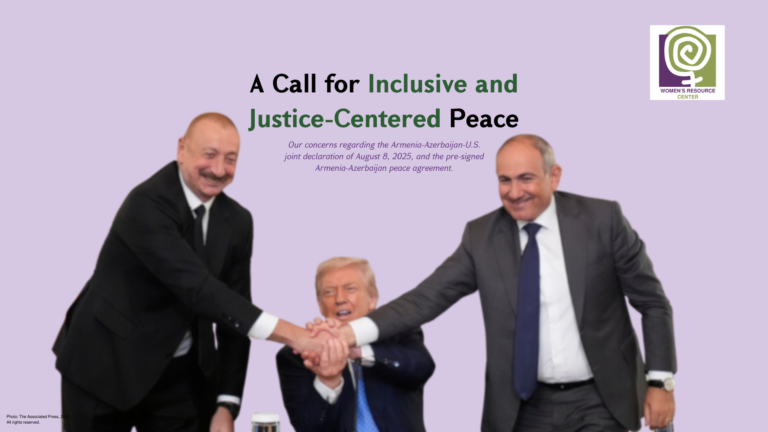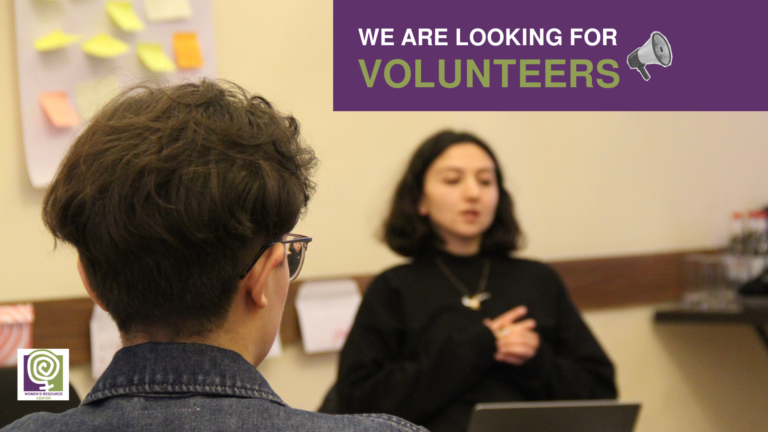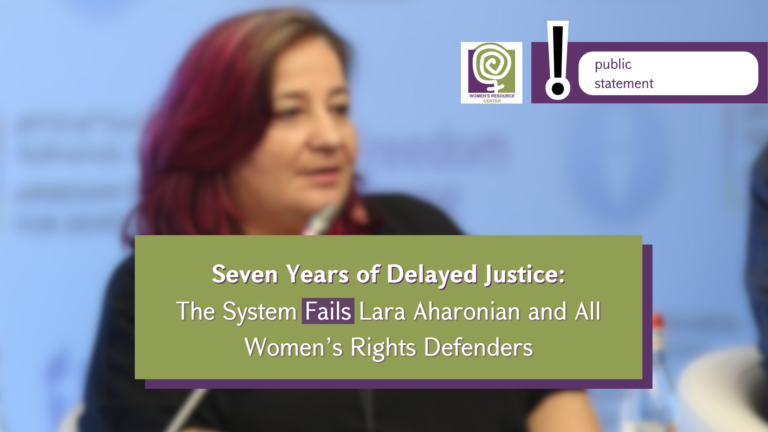The National Day Against Domestic Violence in Armenia was commemorated on October 1st by releasing floating candles on Swan Lake, near the Freedom Square in Yerevan.
“We have come a long way from denial to acceptance of domestic violence as something that impacts every third woman (and not only) in Armenia through her life lifetime,” said the Coordinator of Coalition to Stop Violence against Women, Nvard Manasyan.
On October 1, 2010, 20-year-old Zaruhi Petrosyan was murdered by her husband. After the femicide, the Coalition to Stop Violence against Women was founded and has been commemorating the date.
“All the organizations that for years have been trying to get the message through to society and the government that domestic violence is silently killing women… Now we have come a long way in accepting that the problem exists, and we need to respond to it actively and prevent it,” said Manasyan.
“We advocate for the government to adopt October 1st as the national day of commemoration of victims of domestic violence and as also as a symbolic day to report to the public what the government has done throughout the year toward creating a more peaceful and violence-free society for all,” said Manasyan.
According to the RA Investigative Committee, “the number of criminal proceedings investigated on domestic violence or similar apparent criminal acts has increased by 92.5% in 2023,” mainly due to the new methodology of conducting statistics on criminal proceedings, as the committee states.
“I hear about domestic violence every day, and each time, it seems like that’s the worst case; it cannot get any more disturbing. The patriarchal system strikes me over and over again. The pain of people who face domestic violence is unthinkable. Words and actions are small things that you can do to help them,” said Anna, a demonstration participant.
The Coalition calls everyone to commemorate and turn October 1st into a solemn day.
The Council of Europe Convention on Preventing and Combating Violence against Women and Domestic Violence, according to Manasyan, is a specific instrument that declares violence a form of discrimination. “It provides comprehensive protection, from prevention to provision of assistance and prosecution, systemically approaching the eradication of violence against women and domestic violence.
Manasyan says that while far-right groups opposed the adoption of the convention due to its being signed in Istanbul (although Turkey has withdrawn from the convention) and alleging the convention would ‘harm’ the traditional family, it is an important international document aiming to help to prevent and end gender-based violence.
“The convention is a primary document to prevent and protect victims of violence and prosecute the abusers,” says the Coordinator of the Coalition of Domestic Violence Support Centers, Nare Hayrapetyan.
“People are often misguided about the convention, but they can easily access it either in Armenian or English and read it themselves; then they will see that the manipulations about the conventions have nothing to do with the reality,” says Hayrapetyan.
Armenia is yet to ratify the Council of Europe Convention on Preventing and Combating Violence against Women and Domestic Violence.
“Changes in attitudes toward violence result from legislative regulations,” says Hayrapetyan.
Armenia’s domestic violence law was amended in April 2024, “removing the reference to ‘family harmony’ and adding additional acts of physical, sexual, psychological, and economic violence that can be considered domestic violence,” according to Human Rights Watch.
The recent changes to the law on domestic violence recognize the violence by ex-partners, too. The children witnessing domestic violence have the status of victims now, says Hayrapetyan.
Since the founding of support centers, there has been a rise in domestic violence cases as more women reach out for help, says Hayrapetyan.
The nonprofits are often multifunctional, providing different services and organizing events for women. So, women have a safe space to share their experiences, and often, it is how they recognize the patterns of violence in their relationships and seek out help, says Hayrapetyan.
The government must guarantee the maintenance of one support center for each region (marz) by law. However, due to infrastructural and socioeconomic circumstances, many women, especially those residing further from the center, have little accessibility to its services, says Hayrapetyan. Thus, the support centers often have hotlines to assist women remotely.
The Council of Europe Convention on Preventing and Combating Violence against Women and Domestic Violence requires the government to maintain one support center for every 20,000 people, says Hayrapetyan; the convention will also provide funding to assist the government’s budget.
“The main obstacle in our field is the judicial system,” says Hayrapetyan. The court proceedings may be artificially delayed, sometimes taking years; the children may be placed with the family of the abuser; the police may be not sensitive; and in certain proceedings, the victims of violence may have to face the abuser, which is unacceptable, says Hayrapeptyan.
“Our job is to empower the victims of violence and provide them support,” says Hayrapeptyan, “but we are not superheroes; we cannot disarm the abuser or make decisions on behalf of the victim.
“Sometimes, people have exaggerated assumptions about our capabilities,” says Hayrapeptyan. While not omnipotent, the support centers are closely working with the victim every step of the way to break the chain of violence.
In Armenia, not only are women and children considerably affected by domestic violence, but LGBTQI+ people, too, says the Head of Communications at Pink Human Rights Defender NGO, Mamikon Hovsepyan.
Inhumane treatment, psychological suffering, and other cruelties leave the victim in a difficult condition and sometimes cause death, says Hovsepyan.
Forty-two cases of human rights violations in conjunction with discrimination have been recorded against LGBTQI+ persons in the first half of 2024 by Pink; 29 of the documented cases are cases of domestic violence, only one of which is violence committed by a partner, says Mamikonyan.
“As for partner abuse among same-sex couples, it is noteworthy that according to the new amendments to the law on domestic violence, the law should also be applied in cases of partner violence as well,” according to Pink’s Semi-annual 2024 summary. “However, distrust towards the law enforcement system among LGBT people is still a huge barrier to turn to law enforcement in such cases.”
If you or someone you know is subjected to domestic violence, please contact the Women’s Support Center at 099 88 78 08.
